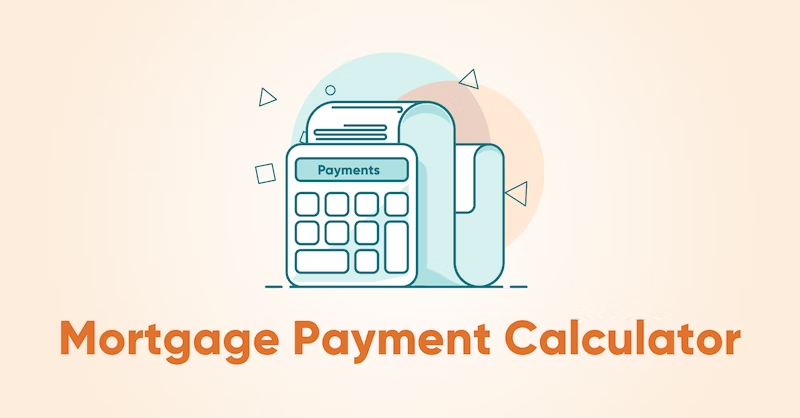Is Gross or Net Income Better for Calculating Mortgage Affordability?
Nov 09, 2024 By John Davis
Advertisement
Buying a home is one of the biggest decisions you can make, and it's important to ensure you are taking the right steps to ensure you can afford your mortgage. One way to assess affordability is by considering gross or net income – but which should you use? This blog post will explore gross or net income and discuss why either may be beneficial for calculating mortgage affordability.
We'll also look at other factors beyond income that could affect your ability to repay a loan. By understanding the differences between gross and net income and other considerations when assessing whether you can purchase a home, you'll be better equipped with the knowledge needed when looking at potential mortgages.
Difference Between Gross Income and Net Income
Gross income is the total amount of money you make before any deductions. It includes wages, salaries, bonuses, commissions, tips, and other sources of compensation. You receive net income after all taxes and other deductions have been taken out of your paycheck. This is also known as “take-home” pay.
Regarding your mortgage affordability, gross income can be a better factor to consider because it reflects the amount of money you can receive before taxes and other deductions. This means that this figure is more likely to reflect what you have available for payments on a loan. Net income is useful because it tells you exactly how much money you have available after taxes and other deductions are taken out. This information can be helpful when budgeting for a mortgage or other loan payments.
When calculating your mortgage affordability, it is important to consider gross and net income. This will give you an accurate representation of how much money you have available for loan repayment. Additionally, other factors are to consider, such as your existing debts and credit score. Be sure to consider all of these elements when determining how much home you can afford. By understanding the difference between gross income and net income, you will be in a better place to make an informed decision about whether or not you can truly afford a mortgage.
How Much of a Mortgage Can I Afford
When it comes to mortgages, it's important to understand your finances and how much you can realistically afford. To determine the amount of a mortgage you can afford, several factors include income, debts, and credit score.
Your gross or net income is an important factor when calculating affordability. You'll want to ensure that your loan payments are manageable based on your income. Additionally, it's important to consider existing debts such as credit card payments or student loans. These can take away from the money you have available for a monthly mortgage payment.
Lastly, lenders will consider your credit score when evaluating whether or not to approve you for a loan. A good credit score is a sign that you have a history of paying back your debts, which will work in your favor when applying for a mortgage.
When considering affordability, it's important to consider all these factors and determine how much of a mortgage you can afford. Additionally, having a clear budget or spending plan can help ensure you stay within your budget with a mortgage. With the right knowledge and careful planning, you'll be able to find a loan that fits within your budget and allows you to purchase the home of your dreams.
How Do Lenders Determine Mortgage Loan Amounts
Lenders typically look at your debt-to-income ratio and credit score when obtaining a mortgage. Your debt-to-income ratio is calculated by dividing your total monthly debts by your gross or net income. This ratio helps lenders determine how much loan you can realistically afford.
Gross Income
If your debt-to-income ratio is too high, lenders may not be willing to offer you a loan. Lenders will also look at your credit score to determine if you are a good candidate for a loan. A good credit score indicates that you have a history of paying back debts and can be trusted with an additional loan.
Once the lender has reviewed your debt-to-income ratio and credit score, they will determine the loan amount. Generally speaking, lenders typically lend up to a certain percentage of the home's purchase price. This amount may vary from lender to lender, but it usually ranges between 80% and 90%.
When obtaining a mortgage loan, lenders consider factors such as your gross or net income, debts, and credit score. It's important to ensure you are in the best financial position possible before applying for a loan to get the most favorable terms.
Your Credit Score
Your credit score is an important factor when applying for a mortgage. Lenders will review your credit score to determine if you are a good candidate for a loan. A good credit score indicates that you have a history of paying back debts and can be trusted with an additional loan.
It's important to check your credit report before applying for a mortgage to ensure there are no errors. Additionally, if your credit score is on the lower end, it may be beneficial to improve your score before applying for a loan. This can include paying down existing debts and making all payments on time.
Costs Beyond the Mortgage
Property Taxes
When looking at a mortgage, it's important to consider other costs beyond the loan itself. For example, property taxes are paid yearly and can significantly impact your budget. Make sure you factor in these additional expenses when calculating how much of a mortgage you can afford.
Homeowner’s Insurance
Another cost to consider when looking at a mortgage is homeowners insurance. Homeowner’s insurance protects you from any losses or damages that may occur to your home. Sometimes, the lender may require you to purchase a policy before they approve your loan.
It's important to understand all the costs associated with purchasing a home to ensure you are in the best position to make a realistic decision about how much of a mortgage you can afford. By considering all aspects of affordability, you'll be able to find a loan that works for you and your budget.
FAQs
What factors do lenders consider when determining mortgage affordability?
Lenders typically consider your income, debts, and credit score when determining whether or not you qualify for a loan. They will also look at the home's purchase price and determine what percentage of this amount they are willing to lend to you.
Should I use gross or net income when calculating my debt-to-income ratio?
Generally speaking, lenders typically prefer to use gross income when calculating a debt-to-income ratio. However, discussing this with your lender to ensure you are using the most accurate number is important.
Does my credit score affect the amount of the loan I can get?
Yes, your credit score does impact the amount of a loan you can get. Generally speaking, lenders typically lend up to a certain percentage of the purchase price of the home, which may vary from lender to lender. A good credit score can also help you secure more favorable terms for your loan.
Conclusion
When buying a home, understanding your finances is one of the most important steps in ensuring that you can afford a mortgage. When assessing affordability, it's important to consider gross and net income and other factors such as existing debts, credit score, property taxes, and homeowners insurance. With the right knowledge and careful planning, you'll be able to find a loan that fits within your budget and allows you to purchase the home of your dreams.
Advertisement

Kelly Walker Oct 03, 2024
The Ultimate Guide to Choosing the Best Factoring Companies
88818

Kelly Walker Jan 21, 2025
Going Back To India To Retire: What You Need To Know
32015

John Davis Nov 17, 2024
Beginner's Guide: 7 Simple Steps to Starting Your Instagram Blog
2521

Kelly Walker Dec 01, 2024
How to Choose the Right Student Bank Account for Your Needs
43143

Kelly Walker Nov 07, 2024
Top Mutual Funds
45395

Rick Novak Sep 04, 2024
Exploring Your Student Loan Repayment Choices
77016

Rick Novak Aug 24, 2024
Unveiling Shares Outstanding: A Comprehensive Guide
93710

Kelly Walker Dec 16, 2024
A Comprehensive Comparison: Priceline vs. Hotwire
4790
